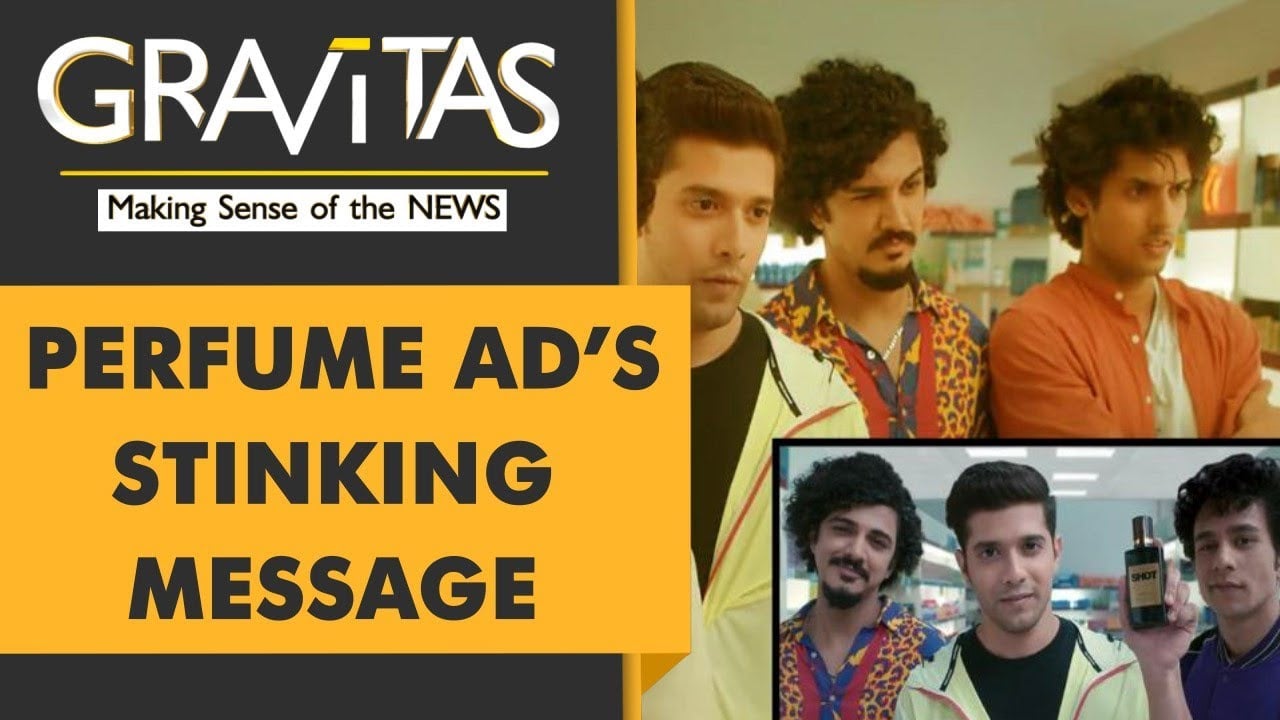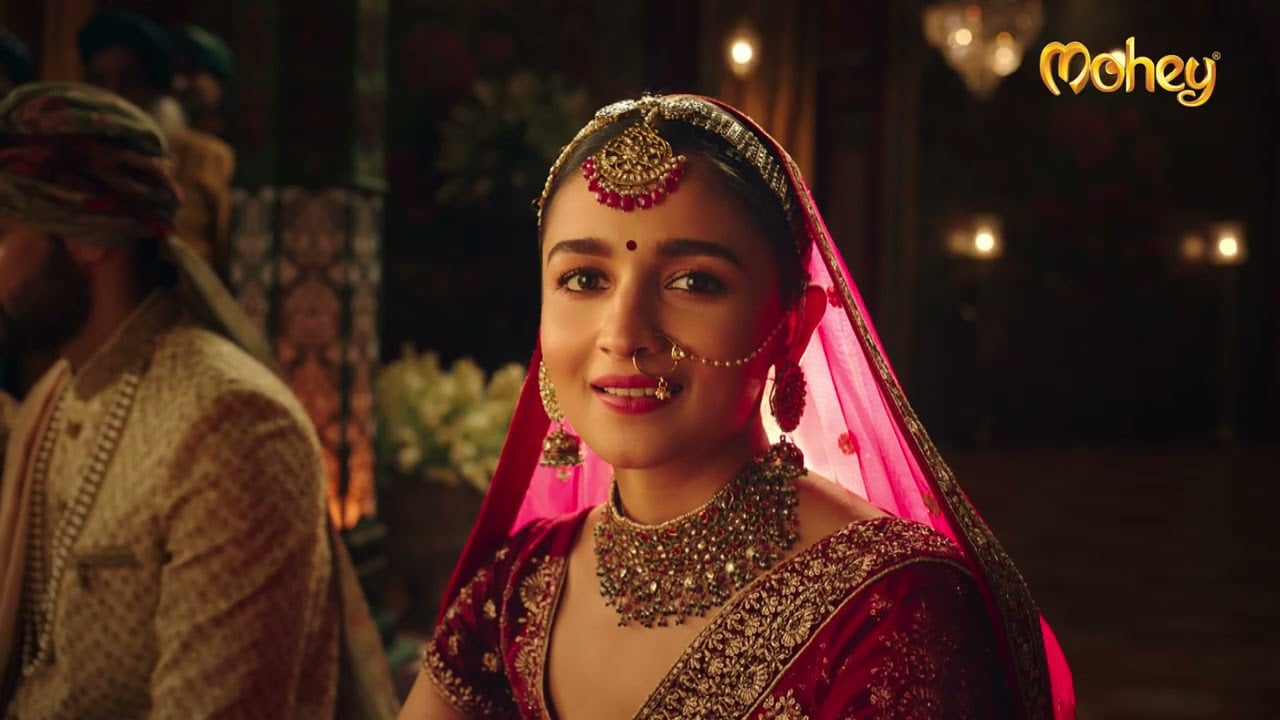10 Indian Brands that Have received Flak over Adverts
Social media users did not take to the ad kindly.
Now and then, Indian brands receive flak over controversial content in their advertisements.
This is especially relevant if the brands are seen to be supporting or promoting negative aspects of society.
Some memorable examples include Sabyasachi’s mangalsutra ad campaign and Dabur’s bleaching cream ad in which two women celebrated Karwa Chauth together.
Interestingly, these ads have tried to show India in a modern, more tolerant light, which has been resisted by a section of people that called for boycotts.
Here, we present a round-up of several adverts that made headlines in the recent past but for all the wrong reasons.
Layer’s

Perfume brand Layer’s range called Shot came under the scanner for a few advertisements.
‘Shot’ attracted outrage for rape insinuations in their plot lines. In one ad, three men enter a room in which a man and a woman are there.
One of them asked, “I believe you have taken the shot.”
“Yes, I have,” replied the man with the woman.
Then one of those who entered said “Now it’s our turn” and walks ahead, immediately discomforting the woman, but he goes past her and picks up the perfume bottle, following which the woman gets a sigh of relief.
There were similar advertisements by the brand which were criticised for their sexual and rape-related insinuations.
Tanishq
Tanishq has officially withdrawn their ad after being trolled viciously. Here’s why this is a very sad state of affairs, and context from other such ads that were trolled (and some, withdrawn) https://t.co/Nb0cSiTPHX pic.twitter.com/sn3IMBqdmC
— Karthik ?? (@beastoftraal) October 13, 2020
The ad for ‘Ekatvam’ jewellery, which was released on October 9, 2020, showed a Muslim family organising a baby shower for their Hindu daughter-in-law who is pregnant.
Describing the ad as “a beautiful confluence of two different religions, traditions, cultures”, Tanishq showcased this spirit under their official YouTube video, which has since been taken down:
“She is married into a family that loves her like their own child. Only for her, they go out of their way to celebrate an occasion that they usually don’t.”
Those criticising the ad said it endorsed “love jihad”, which is known in right-wing circles as a method used by the Muslim community to induct Hindu women into their religion through means of marriage or love, leading to conversion.
Following the ad’s release, Titan and Tata, the parent companies behind Tanishq, also faced heat with people calling for a boycott of other Tata brands like Voltas and Starbucks.
The ad was taken down on October 12, 2020, from Tanishq’s platforms.
Kent RO
Can you believe this ? I hope they get called out real bad – Kent go purify yourself !!!!! Shame !!! pic.twitter.com/e1lnSrCuLr
— Viji Venkatesh ?? ??? ??????? (@vijivenkatesh) May 26, 2020
In May 2020, in the wake of sanitation advisories around Covid-19, Kent RO put out an ad campaign that immediately drew flak for class discrimination.
The still endorsement, advertising the brand’s Atta Maker and Bread Maker, showed a pair of hands kneading dough, with the caption:
“Are you allowing your maid to knead atta dough by hand? Her hands may be infected.”
The ad had evident classist overtones, as social media users pointed out, saying that it was horrible of the brand to imply that the housekeepers were susceptible to poor hygiene and the virus.
Many even called out the brand’s use of the term “maid” which is perceived to have derogatory connotations.
Following social media backlash, Kent RO apologised and pulled the ad down.
AU Small Finance Bank
I just fail to understand since when Banks have become responsible for changing social & religious traditions? I think @aubankindia should do activism by changing corrupt banking system.
Aisi bakwaas karte hain fir kehte hain Hindus are trolling. Idiots.pic.twitter.com/cJsNFgchiY— Vivek Ranjan Agnihotri (@vivekagnihotri) October 10, 2022
Aamir Khan and Kiara Advani came together for the first time onscreen for an AU Bank advertisement about banking services that challenged Hindu marriage traditions.
While many appreciated it for breaking stereotypes, a lot of them expressed offence and demanded a boycott.
The Kashmir Files filmmaker Vivek Agnihotri too slammed the ad for hurting Hindu sentiments.
Owing to the flak they received, AU Bank pulled down the advert.
The advert featured Kiara Advani and Aamir Khan as a bride and groom, where unlike the custom of the bride going to the groom’s house, it was shown that the groom had gone to the bride’s house, reversing the tradition.
Ola
2016 and @Olacabs still makes ads where women depend on men to buy things. Not to miss subtle objectification by comparing them with cars 🙂
— little miss gobhi (@gobhi_phool) April 21, 2016
Ola’s 2016 ad titled ‘Micro Stories: Too expensive to take GF out on a date?’ showed a couple roaming the market, with the woman halting to shop at every store, much to the chagrin of her boyfriend.
He turned to the camera and said: “Meri girlfriend chalti hai Rs.525 per km, but Ola Micro chalti hai sirf Rs.6 per km,” (It costs me Rs.525 per km when my girlfriend walks but Ola Micro runs at just Rs.6 per km).
The advert was criticised for being sexist, reinforcing the age-old trope of women annoying men, given their generalised penchant for shopping.
Ola pulled the ad down, but not without a snarky jibe: “We understand one of our TVCs has ended up hurting some sentiments.
“We’ve pulled it down. However, #OlaMicro continues to run at Rs.6/km.”
Vimal Elaichi

Akshay Kumar joined Bollywood actors Ajay Devgn and Shah Rukh Khan in endorsing a pan masala brand.
The actor, who is a fitness devotee, was mocked for his brand choice.
Fans went belligerent on social media against the actor and mocked his choice of endorsement.
After many backlashes, Akshay Kumar finally took to social media to apologise and subsequently excuse himself from the brand’s association.
Jawed Habib
Workers of Hindu outfit vandalise Jawed Habib Hair Salon in UP over latest ad https://t.co/wCWKtswfpv pic.twitter.com/5xNAFy4IR7
— IndiaToday (@IndiaToday) September 9, 2017
Hairstylist and businessman Jawed Habib, who runs hair salons across India under his banner, stirred controversy when he released an ad with religious symbolism around the time of Durga Puja.
The 2017 newspaper ad showed various gods from Hindu mythology – Durga, along with her children Kartik, Lakshmi, Saraswati, and Ganesh – having a spa day at Jawed Habib’s.
The caption read: “Gods too visit JH salon.”
The visuals of gods engaging in vanity, putting on makeup, and counting money drew flak from netizens who accused Habib of targeting gods of the religion he didn’t abide by.
What’s more, a Habib salon was also vandalised in Uttar Pradesh owing to the outcry.
Habib later issued a video apology on social media for his ad, which was not reprinted in circulation after.
Manyavar

Alia Bhatt, who recently got married to Ranbir Kapoor, was seen in a wedding apparel campaign for Manyavar.
The actress in the advertisement is seen criticising the practice of ‘kanyadaan’, wondering whether she is something to give away.
People on social media didn’t take this lightly and trolled the actress and the advertisement for offending religious sensibilities.
The advertisement sparked an online debate and some people even appreciated the different take on rites and traditional customs.
But there was a huge section of the audience that was grossly disappointed by the advertisement.
Zomato
Shame on you @ZomatoIN ! Absolutely shameful what you’ve attempted to do. Your investors should be sickened by your behaviour! @smritiirani : this is outrageous. @ascionline pic.twitter.com/pSChhHSrxo
— SUHEL SETH (@Suhelseth) November 30, 2017
Zomato, known for its quirky branding, perhaps had too much fun with one of its ad campaigns that eventually became a cause for public outrage.
For one of their OOH ads displayed across hoardings and banners in Delhi-NCR, the food delivery app had positioned the letters ‘MC. BC.’ in bold, with tinier lettering beneath that read ‘mac n’ cheese’ and ‘butter chicken.’
The audience and several social media users did not take to the advert kindly, since MC BC expands into Hindi expletives generally understood as crass.
After outrage chiefly manifested on social media, the hoardings were taken down and the brand apologised.
Various other advertisement moguls also criticised the use of such an ad, saying it was in poor taste.
Macho Sporto

Vicky Kaushal and Rashmika Mandanna starred in an underwear advert for Macho Sporto in 2021.
Vicky Kaushal is featured in the advertisement enjoying a yoga lesson with instructor Rashmika Mandanna.
Vicky’s shirt rises as she instructs pupils to extend their hands to perform an asana, revealing his underwear strap.
This excites her, and she begins counting slowly. Netizens criticised the advert for objectifying Vicky Kaushal and labelled it cheap.
Both the brand and the celebrities were trolled massively for being involved in such a promotional tactic.
With so much competition for attention today, controversial adverts are becoming more commonplace.
Indian brands have to be bold to be heard, and sometimes they cross the line.
Some agencies have even gone so far as to create work they know will get banned to garner maximum publicity with minimum marketing spend.
Others have no idea the impact their work will have when it plays in the wider world.